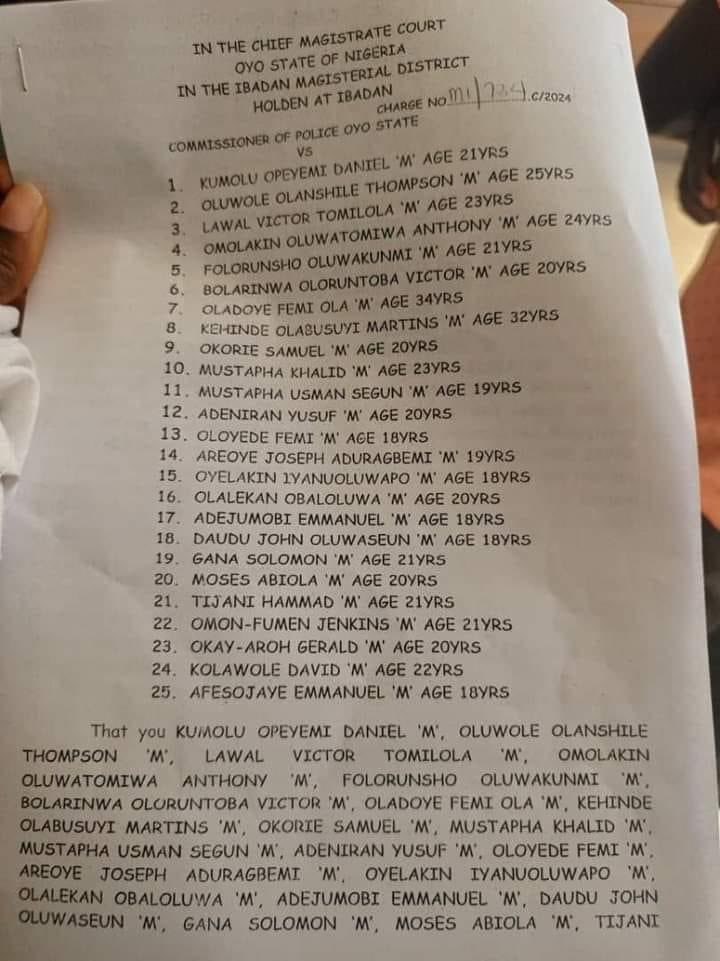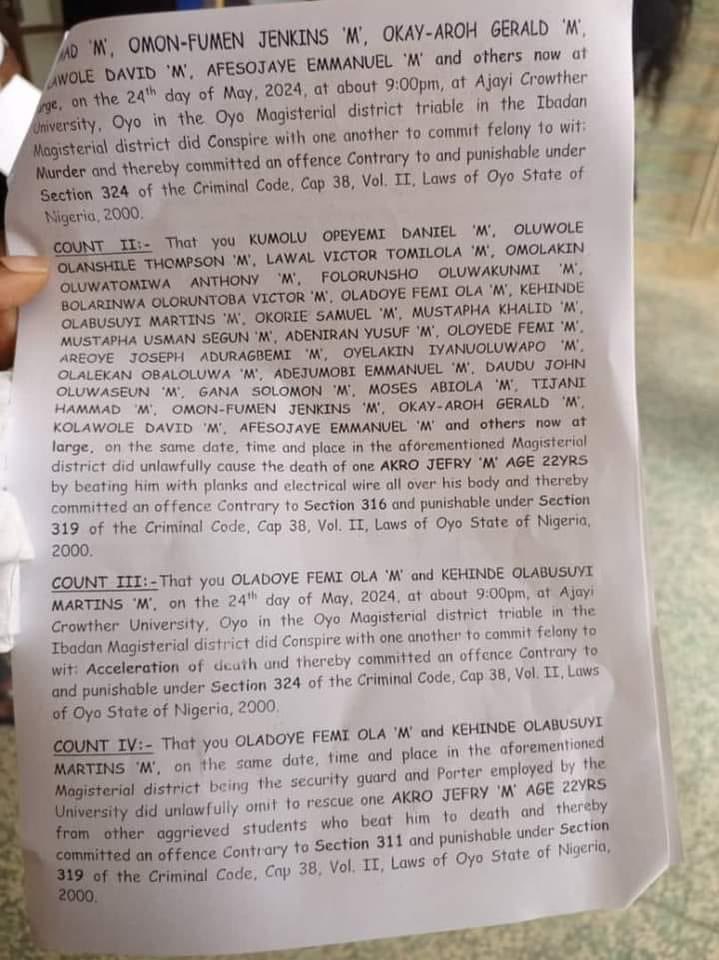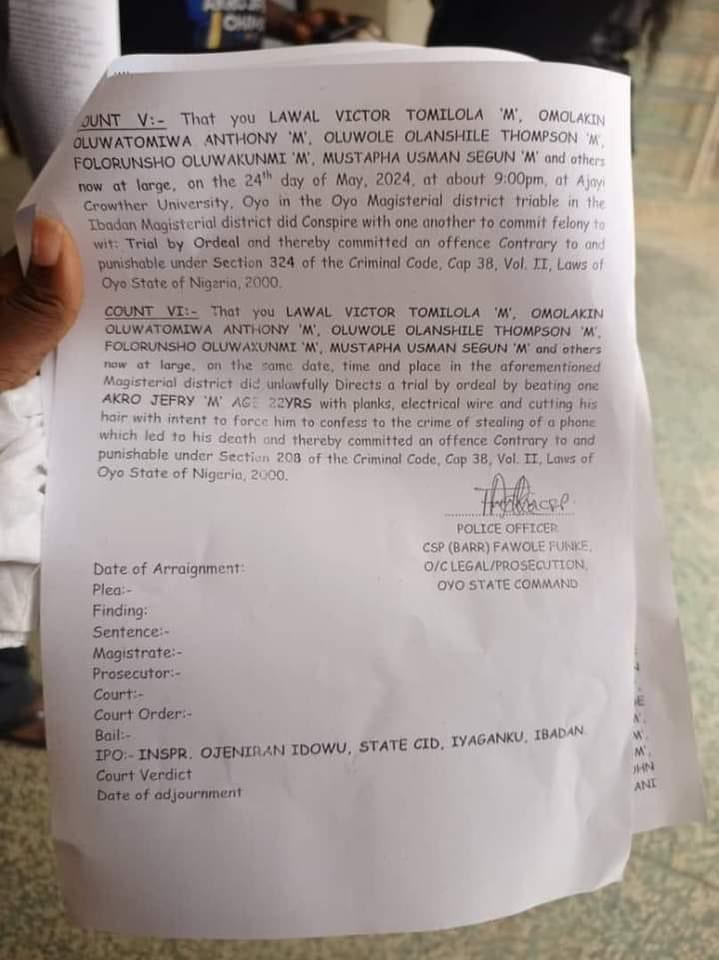Accusations Include Conspiracy, Murder, and Trial by Ordeal
In a high-profile case, 25 individuals have been arraigned before the Chief Magistrate Court in Ibadan, Oyo State, on multiple charges including conspiracy, murder, and trial by ordeal, following a violent incident at Ajayi Crowther University.
According to court documents, the incident occurred on the evening of May 24, 2024, at Ajayi Crowther University. The individuals are accused of conspiring to commit acts that led to the death of a student, identified as Akro Jefry, aged 22. The accused allegedly beat Jefry with planks and electrical wire, resulting in his death.
**Count I**: The accused individuals are charged with conspiracy to commit murder, contrary to and punishable under Section 324 of the Criminal Code, Cap 38, Vol. II, Laws of Oyo State of Nigeria, 2000.
**Count II**: Specific individuals, including Kumolu Opeyemi Daniel and others, are accused of unlawfully causing the death of Akro Jefry by inflicting severe physical harm, a violation under Section 316 and punishable under Section 319 of the Criminal Code.
**Count III and IV**: Oladoye Femi Ola and Kehinde Olabusuyi Martins face additional charges of conspiracy and failure to prevent the murder, despite being in positions of authority as security personnel at the university. These actions are in violation of Sections 324 and 311 of the Criminal Code.
**Count V and VI**: Lawal Victor Tomilola and several others are charged with conducting a trial by ordeal, forcing the victim to confess to the theft of a phone, an act contrary to Section 203 of the Criminal Code.
The court document lists the names and ages of all 25 accused, highlighting the range of individuals allegedly involved in this tragic event.
The Commissioner of Police, Oyo State, represented by CSP (Barr.) Fawole Funke, initiated the charges, with the arraignment supervised by Inspector Ojeniran Idowu from the State CID, Iyaganku, Ibadan.
The case underscores the severe legal consequences of mob actions and the importance of adherence to lawful conduct in the resolution of disputes.









